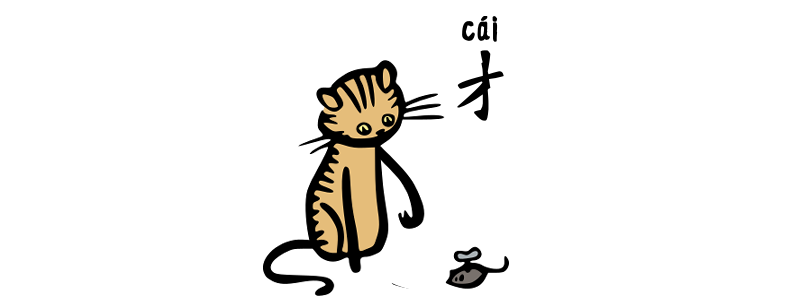Grammar Point:
In Chinese, 才 cái can express the meaning of “only if” or “only when.” When it is used with 如果 rúguǒ, it shows that a certain condition must be met before the result in the main clause can happen. However, even if the condition is met, the result is not automatically guaranteed. It simply becomes possible.
Structure
如果 rúguǒ + condition + 才 cái + result
The “if” clause is necessary but not the only requirement for the speaker. Also, “如果 rúguǒ” can be replaced by other “if” synonyms, such as “要是 yàoshi,” “万一 wànyī,” and “的话 dehuà.”
如果你會說中文,才有機會在中國工作如果你会说中文,才有机会在中国工作
Only if you can speak Chinese, then you have a chance to work in China.
要是我下班下得早,我就能去看電影要是我下班下得早,我就能去看电影
Only if I get off work early will I be able to go see a movie.
我晚上不睡覺的話,才有可能完成這個報告我晚上不睡觉的话,才有可能完成这个报告
Only if I don’t sleep at night, will I have a chance to finish this report.
要是今天不下雨,才可以去爬山要是今天不下雨,才可以去爬山
We can only go hiking if it doesn’t rain today.
如果10年後我還是沒成功,我才會放棄我的夢想如果10年后我还是没成功,我才会放弃我的夢想
Only if I still haven’t succeeded in 10 years, then I will give up on my dreams.
你先把錢還給我的話,我才可能再借你錢你先把钱还给我的话,我才可能再借你钱
Only if you return the money first, then I may lend you money again.
- When the “if” clause is necessary and the only requirement for the speaker, you need to use 就 jiù.
Practice
TouchHover over the space to see the answers.
✔️ I will only go only if you go.
如果你去我才去如果你去我才去
✔️ I’ll buy it only if you agree.
要是你同意我才買要是你同意我才买
✔️ I’ll only say it if you promise not to tell anyone.
要是你保證不告訴別人,我才說要是你保证不告诉别人,我才说
Other 才 cái related posts:


